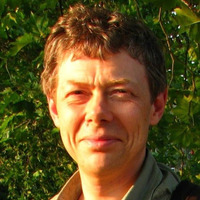Leonid Kulikov (PhD, Leiden University, 2001; Candidate degree from the Institute of Oriental Studies, Moscow, 1989; graduated from Moscow State University, Dept. of structural and applied linguistics, 1986); currently research fellow at Ghent University. He was affiliated with Institute of Oriental Studies, Moscow (1989-1993), Russian State University for the Humanities [RGGU], Moscow (1991-1993), Leiden University (1993-2002, 2004-2011), University of Nijmegen (2002-2004), Göttingen University (2005-2007, Humboldt-fellowship, project “A grammar of the Rgveda”), Uppsala University (2010), Institute of Linguistics, Moscow (2009-2011) and Ghent University (2011-), teaching a variety of courses, such as Introduction to historical linguistics, Diachronictypology, Typology of voice and valency-changing categories, Indo-European Linguistics, Vedic and Sanskrit grammar and Reading of Vedic texts, Elements of Indo-European syntax, Sanskrit literature. He has published widely on synchronic and diachronic linguistic typology (in particular, on the diachronic typology of voice, transitivity and valency-changing categories), on Vedic philology, and on the Vedic verbal system and syntax, and has edited numerous volumes in the fields of linguistic typology and Indology. He organized a number of international conferences and workshops on historical linguistics and linguistic typology, focusing particularly on historical syntax and synchronic and diachronic typology of transitivity oppositions (University of Nijmegen, 2003; University of Turku, 2006; University of Thessaloniki, 2009 and 2011; Vilnius University, 2010; University of Helsinki, 2016). He is an Associate Editor of the Journal of Historical Linguistics(Benjamins, Amsterdam) and Review Editor of the Journal of South Asian Languages and Linguistics (de Gruyter, Berlin), as well as member of the editorial boards of a number of linguistic and orientalist journals. His current research focuses on the diachronic typology of transitivity, oblique subject, and voice, as well as on the grammar of early Vedic, and a translation of the Atharvaveda (the second most ancient Old Indo-Aryan text).
Please find my full research profile here.
